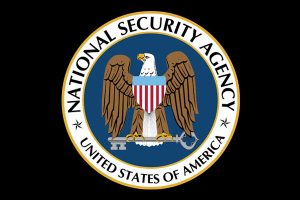This article is from the FBI’s website, but first, note their sidebar box:
Reward for Information
Special Agent James Dougherty has a dozen years of experience investigating spies, and in almost all of the cases he has worked, the subjects’ families, friends, or colleagues had concerns but failed to report them to authorities.
“The FBI needs the public’s help to fight the insider threat,” Dougherty said, “and we are willing to pay for that help.”
Individuals who provide information leading to the arrest and conviction of a spy—or to the prevention of espionage—are eligible for a $500,000 reward.
To report suspicious activities, contact your local FBI office or submit an anonymous tip online.
“There will always be espionage cases,” Dougherty said. “This is a war that can’t be won—it can only be fought. But we can never give up the fight.”
Naval Espionage: Stopping a Dangerous Insider Threat
(FBI) As a sailor with a top secret clearance, a sensitive job on a submarine, and 20 years of service in the Navy, Robert Hoffman possessed a tremendous amount of knowledge about the U.S. nuclear fleet and its operations—knowledge he was willing to sell to the Russians.
“It’s almost impossible to say why someone would become a spy,” said Special Agent James Dougherty, who investigated the case from our Norfolk Division, but Hoffman represents a classic example of the insider threat.
“When a U.S. citizen with classified information threatens to betray his country,” Dougherty explained, “the resulting damage to national security and loss of American lives can be catastrophic.”
Investigators speculate that Hoffman may have blamed his divorce on the Navy, along with his failure to gain promotion.
The FBI and the Naval Criminal Investigative Service (NCIS) became concerned in 2011 when, nearing retirement, Hoffman told friends he was going on a “man-cation” to Belarus to see Russian women he had previously met when he was stationed in Bahrain—even though he knew the women would not be there.
“He had some sort of motivation to travel to Belarus that didn’t seem logical,” said Dougherty.
In addition, Hoffman ignored the requirement to alert military security officers that he would be traveling out of the country, and he failed to adhere to other security rules of reporting any suspicious incidents while overseas.
However, Hoffman did post items on social media channels saying he met the president of Belarus. “All of that added to our suspicion,” Dougherty noted.
Using court-authorized surveillance, wiretaps, and other investigative tools, FBI and NCIS investigators began monitoring Hoffman’s movements at his home in Virginia Beach following his retirement from the Navy in late 2011.
Soon after, our undercover operatives made contact with him to assess his intentions.
Then, in September 2012, a female FBI undercover agent posing as a Russian operative knocked on Hoffman’s door and delivered a message ostensibly from Russian intelligence officials.
“He received instructions from the woman, who asked him to respond by e-mail within one week,” Dougherty said. “We didn’t want to pressure him. We wanted him to make a conscious decision, knowing he would be dealing with the Russian intelligence service.”
Hoffman didn’t wait a week—he responded within hours.

He agreed to answer a series of questions on an encrypted thumb drive that was to be left in a hollow tree in a park—a hiding place known in the spy world as a dead drop.
On the third such drop, Hoffman divulged top secret national defense information.
“American lives could have been lost based on the information he was willing to give up,” Dougherty said. “He had access to things that were highly, highly sensitive.”
In August 2013, a jury in Norfolk found Hoffman guilty of attempted espionage; last month, the 40-year-old was sentenced to 30 years in prison.
“The insider threat is very real,” said Dougherty, explaining that in these types of cases, there are often people who are suspicious of a friend or colleague’s statements or behavior but who don’t act on those suspicions.
“One of the things we teach in insider threat training,” Dougherty said, “is that if you see something, say something. Often, people don’t want to rock the boat,” he added, “but if you see something that doesn’t seem right, it’s your legal obligation to report it. Let the FBI sort it out. That’s what we get paid for.”
Former Sailor Sentenced to 30 Years in Prison for Attempted Espionage
February 10, 2014
U.S. Attorney’s Office
Eastern District of Virginia
(757) 441-6331
NORFOLK, VA—Robert Patrick Hoffman, II, 40, of Virginia Beach, Virginia, was sentenced today to 30 years in prison for attempting to commit espionage against the United States.
Dana J. Boente, Acting United States Attorney for the Eastern District of Virginia; John P. Carlin, Acting Assistant Attorney General of the Justice Department’s National Security Division; Charles T. May, Jr., the Naval Criminal Investigative Service (NCIS) Acting Executive Assistant Director for Atlantic Operations; and Royce E. Curtin, Special Agent in Charge of the FBI’s Norfolk Field Office, made the announcement after sentencing by Senior United States District Judge Robert G. Doumar.
“Hoffman attempted to spy on behalf of the Russian Federation and betrayed the trust this country placed in him. He was willing to place American lives at risk for personal gain . Today’s sentence should serve as a clear warning to others who would willingly compromise our nation’s most sensitive classified information.” — Acting U.S. Attorney Dana J. Boente
–
“By attempting to hand over some of America’s most closely held military secrets, Robert Hoffman put U.S. service members and this country at risk. Today, Mr. Hoffman is being held accountable for his actions. This prosecution should serve as a warning to others who would compromise our nation’s secrets. I commend the prosecutors, agents, and analysts who worked diligently on this case.”-– John Carlin, Acting Assistant Attorney General for National Security
–
“Today’s sentencing confirms insider threat exists in our society and pose an enduring risk to our national security. The FBI is dedicated to working with our law enforcement partners to vigorously investigate and disrupt any espionage activity directed against the United States. Counterintelligence continues to be a very high priority with severe consequences.”–Special Agent in Charge Royce Curtin of the Norfolk Field Office of the FBI
After a five-day trial that concluded on August 21, 2013, a Norfolk jury found Hoffman guilty of attempted espionage, as charged in the one count superseding indictment filed on May 8, 2013.
According to court records and the evidence at trial, Hoffman is a U.S. citizen born in Buffalo, New York, who served for 20 years in the U.S. Navy until retiring at the rank of Petty Officer First Class on November 1, 2011.
Hoffman’s rating in the navy was as a Cryptologic Technician-Technical (CTT). In that capacity, he worked aboard or in conjunction with U.S. submarines for much of his naval career.
While deployed, Hoffman operated electronic sensors and systems designed to collect data and information about potential adversaries, scanned the operating environment for threats to the submarine, and provided technical and tactical guidance to submarine commanders.
Due to these duties, Hoffman held security clearances and regularly received access to classified national defense information about U.S. submarines and their capabilities and equipment, about adversaries, about specific missions, and about U.S. military and naval intelligence.
As a condition of receiving access to this sensitive information, Hoffman repeatedly signed agreements not to disclose it to those unauthorized to receive it and regularly received training about his obligations to protect the information and to report without delay any suspicious contacts.
In 2012, the FBI initiated an investigation to determine if Hoffman was willing to act as an agent for a foreign government and commit espionage against the United States by divulging classified information.
As part of this investigation, undercover FBI agents posing as operatives of the Russian Federation contacted Hoffman seeking defense information.
In a series of responsive e-mails and other communications, Hoffman advised that he looked forward to “renewing [a] friendship” with his purported Russian contact, was “willing to develop a mutual trust,” and wanted compensation for his activities in the form of job assistance or payments based upon the risk and effort involved.
Hoffman also emphasized, however, that the need for “security [was] paramount” and suggested they communicate by physical, rather than unsecure electronic, means.
In accordance with this request, undercover agents posed a series of questions to Hoffman and directed, if he chose to reply, that he should signal his willingness to do so by means of a coded reply and then leave his answers on a pre-arranged date in the hollow at the base of a tree at a dead drop site located in Virginia Beach, Virginia.
On three occasions in September and October 2012, Hoffman did just that and filled the drop site with encrypted thumb drives containing answers to the questions posed to him by persons he believed to be Russian agents.
In his answers, Hoffman supplied, among other things, national defense information classified at the levels of secret and top secret/sensitive compartmented information.
Following these disclosures, FBI and NCIS agents arrested Hoffman on December 6, 2012, and the court ordered him detained.
This case was investigated by the FBI and NCIS.
Assistant U.S. Attorneys Robert J. Krask and Alan M. Salsbury and Trial Attorney Heather M. Schmidt of the Counterespionage Section of the Justice Department’s National Security Division prosecuted the case on behalf of the United States.
A copy of this press release may be found on the website of the United States Attorney’s Office for the Eastern District of Virginia at http://www.justice.gov/usao/vae.











